trump
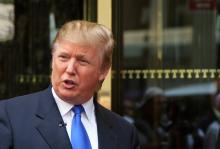
"The Trump administration just took direct aim at birth control coverage for 62 million women," Planned Parenthood Federation of America President Cecile Richards said in a statement.
"With this rule in place, any employer could decide that their employees no longer have health insurance coverage for birth control," Richards added
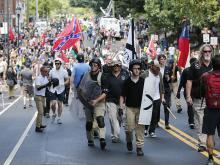
“We request upon you to join with many other political and religious leaders to proclaim with one voice that the ‘alt-right’ is racist, evil, and antithetical to a well-ordered, peaceful society,” reads the letter first published by CNN.
The signers — including Southern Baptist Convention President Steve Gaines, former SBC President Fred Luter, and prominent African-American evangelical leaders T.D. Jakes and Tony Evans — reproach Trump for failing to speak out against the so-called alt-right.
“This movement has escaped your disapproval,” the letter reads.
Without naming names, it further states: “It concerned many of us when three people associated with the alt-right movement were given jobs in the White House.”
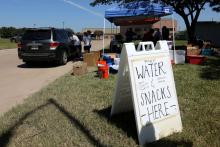
The Texas officials’ letter follows a Sept. 4 lawsuit filed by three churches in the state that were damaged by Hurricane Harvey. They are challenging the current FEMA policy, which “explicitly denies equal access to FEMA disaster relief grants for houses of worship solely because of their religious status,” according to the lawsuit.
1. The Juggalo March Is Not a Joke
"What's unique about Juggalos is that they embrace and throw their class status in everyone's face—they’re flaunting their own disenfranchisement. ...They've recognized that the American dream is unattainable and made new dreams for themselves. That scares people. That scares the FBI. This is not what poor people are supposed to do."
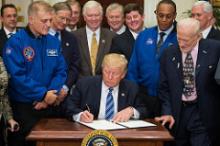
Conversely, George W. Bush's administration in his first term had three men to every one woman, and two women served for every five men in the Obama and Clinton administrations.
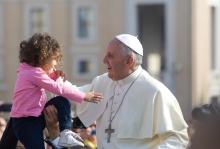
"The President of the United States presents himself as pro-life and if he is a good pro-lifer, he understands that family is the cradle of life and its unity must be protected."
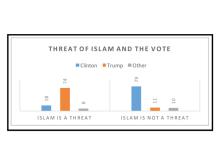
Almost three-quarters of Trump voters said Islam is a threat, compared with 18 percent of those who voted for Hillary Clinton. An even higher percentage — 81 percent — of Trump voters strongly agreed that Middle East refugees are a terror threat, compared with 12 percent of Clinton voters.
“Today, divisions in the American public are stark,” said Paul Froese, a Baylor University sociology professor and director of Baylor Religion Surveys. “We can trace many of our deep differences to how people understand traditional morality, theology, and the purpose of our nation.”

And while presidents before have consulted with spiritual advisers — evangelist Billy Graham is the best-known example — the current group’s members certainly appear to care not only about Trump’s own spiritual well-being, but also have concrete views about a range of issues and make no secret of wanting policy changes.
But exactly how much influence they wield — and whether they benefit from the association — is a matter of conjecture and debate.
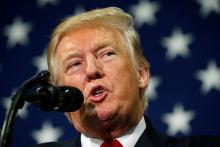
Trump received pressure from many conservatives: Texas Attorney General Ken Paxton and nine other state attorneys general threatened to sue the administration if he didn’t announce an end to the program by Sept. 5, next week. Trump has not been clear about a decision, but during his campaign promised to terminate the program along with all other immigration executive orders by President Obama
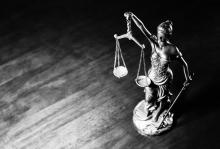
As President Trump has pointed out, others have made bad use of that same power, favoring cronies (Scooter Libby) and benefactors (Marc Rich.) He is right about that. Both of those made my stomach turn. I was a federal prosecutor when President Clinton pardoned Marc Rich, and it was infuriating — rewarding a fugitive cut against everything I worked for. In pardoning former Maricopa County Sheriff Joe Arpaio, though, Trump has done something worse: The president has not only rewarded someone who is unrepentant, but he has celebrated the crime itself. When asked about the pardon, Trump said of Arpaio that “He’s done a great job for the people of Arizona, he’s very strong on borders, very strong on illegal immigration, he is loved in Arizona ...”
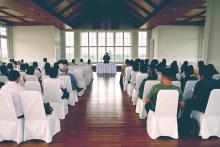
What now? Where do churches go from here? Here are five initial thoughts I would like to share, knowing the answer isn’t simple — it will take our collective discernment from the whole diversity of our churches to continue addressing our post-Charlottesville way forward.
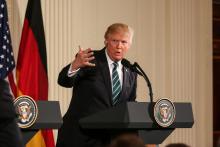
“Responsibility for the violence that occurred in Charlottesville, including the death of Heather Heyer, does not lie with many sides but with one side: the Nazis, alt-right and white supremacists who brought their hate to a peaceful community. They must be roundly condemned at all levels.”
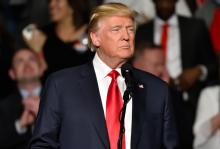
Daniel Kammen, a professor at the University of California, Berkeley, said in a letter posted on his Twitter account that Trump had failed to condemn white supremacists and neo-Nazis, part of "a broader pattern of behavior that enables sexism and racism, and disregards the welfare of all Americans, the global community and the planet."
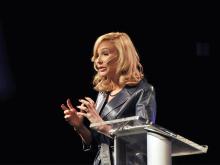
“They say about our president, ‘Well, he is not presidential.’ Thank goodness. Thank goodness. Thank goodness,” White said. “And I mean that with all due respect. Because in other words, he is not a polished politician. In other words, he is authentically — whether people like it or not — has been raised up by God.”
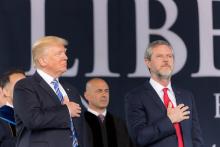
More than 100 Liberty University graduates have pledged to withdraw support and return their diplomas to the office of university president Jerry Falwell Jr., citing his continued support of President Donald Trump after Charlottesville — along with a letter expressing their concerns, copied to Liberty’s board of trustees, by Sept. 5.
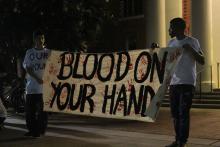
Instead of preparing for the first day of school Tuesday, several hundred students at the University of Virginia spent Monday night rallying to call for more racial diversity at the school and to highlight its history of discrimination.
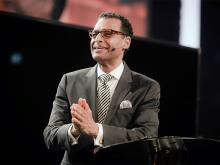
Preaching days after he became the first member of the White House’s evangelical advisory board to resign after the president’s comments on Charlottesville, Va., the Rev. A.R. Bernard said he sees the controversy swirling around the board as a sign that “God is at work.”
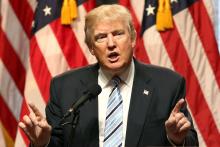
In the wake of the white supremacist rally and subsequent violence in Charlottesville, VA last week, faith activists are calling upon members of the president’s Evangelical Advisory Council to resign. " The Resistance Prays " — a daily newsletter which describes itself as “fueling the resistance to Trumpism” — has created and disseminated a spreadsheet with contact information for each member of the advisory council, encouraging people to contact council members directly. Meanwhile, Donald Scherschligt — a California-based faith activist and graphic designer — has organized a petition which is being shared widely and rapidly gaining signatures.
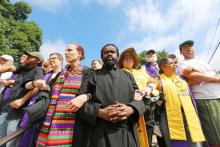
"White supremacy and racism deny the dignity of each human being revealed through the Incarnation. The evil of white supremacy and racism must be brought face-to-face before the figure of Jesus Christ, who cannot be confined to any one culture or nationality. Through faith we proclaim that God the Creator is the origin of all human persons. In the words of Frederick Douglass, “Between the Christianity of this land and the Christianity of Christ, I recognize the widest possible difference."

So much in the world needs to change, but the people doing the most to change the world are often zealous. I know I was — and self-righteous, too. Yet perpetual effort to forge a new world did not heal my soul; rather, it deepened my soul’s sense of separation from love. To put it theologically, a friend involved with left-wing Catholic Worker style communities describes a subtle culture of “not enough,” as communal embodiment of what Martin Luther called “works-righteousness.”